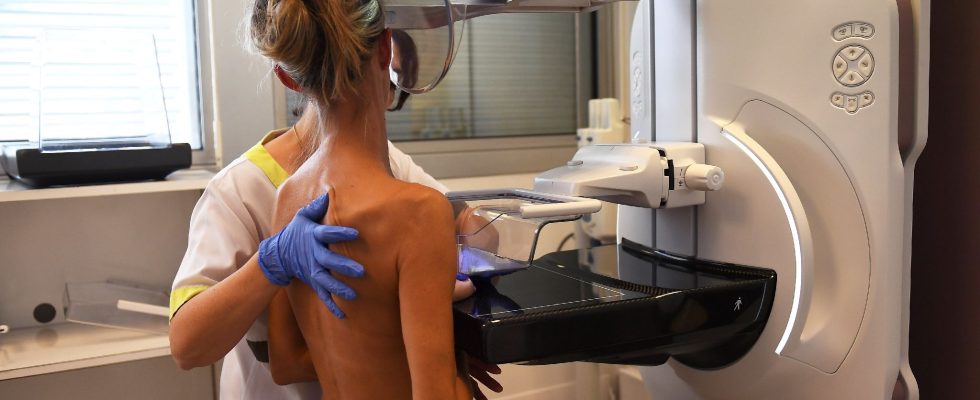With nearly 60,000 cases detected and more than 12,000 deaths each year, it remains the cancer that affects the most women in France. And although breast cancer screening has existed since 2004, 12% of women aged 50 to 74 – the age group most likely to develop a form of breast cancer – admit to never having been screened. , according to a study conducted by The League Against Cancer published this Tuesday, September 26.
But as the annual “Pink October” communications campaign prepares to be launched for the 29th consecutive year in France, how can we explain that 1.3 million women are still being screened?
The absence of symptoms
Among the many reasons given by the women interviewed, 34% of them point to the absence of symptoms. However, as the spokesperson for the League, Emmanuel Ricard, explains, “screening is aimed precisely at people who do not complain about anything, to find an incipient illness before the signals appear”. And to emphasize the value of screening, in order to “arrive before the symptoms”.
“When we have symptoms, like a lump that we can feel, that means that it is at least 2 cm long to be palpable. When we do an x-ray, we find tumors that are 0.5 cm. The more tumors are small, the less extensive the surgical procedures, the less the after-effects will be significant, and therefore the treatments will be less toxic and easier to bear.”
Access to care
And for good reason, one of the main problems with breast cancer is that it can be progressive. “You have a few cells at one point, then they will grow. We can have a mammogram which turns out to be normal and which, years later, will perhaps find this cancer”, warns the president of the association who already alarmed last February of a 10% drop in participation in colon and breast cancer screenings since the advent of the health crisis.
At the time, the specialist denounced the shortage of doctors, as well as the closure of many radiology centers, forcing the French to travel more kilometers to get tested. The study published this Tuesday reveals in particular that 15% of the women questioned explain that the screening centers are too far from home, and that the waiting times are too long.
Fear of the exam and its result
In addition, 20% of the women questioned were reluctant to undertake the exercise, which is often presented as painful. “This can come from a bad experience, or a rumor built from bad experiences,” explains the spokesperson for the League Against Cancer, who nevertheless concedes that the examination “can be unpleasant”. “But it’s a blessing in disguise,” he assures.
Fear of the result would also constitute an obstacle, according to the survey carried out by the League against cancer, since 16% of women admit to fearing the diagnosis made by the doctor following a screening. “Many are going through economic difficulties today and tell themselves that they will not be able, psychologically, to manage this diagnosis. Believing that it would be “too much to manage”, they prefer to ignore this possibility,” summarizes Emmanuel Ricard.
